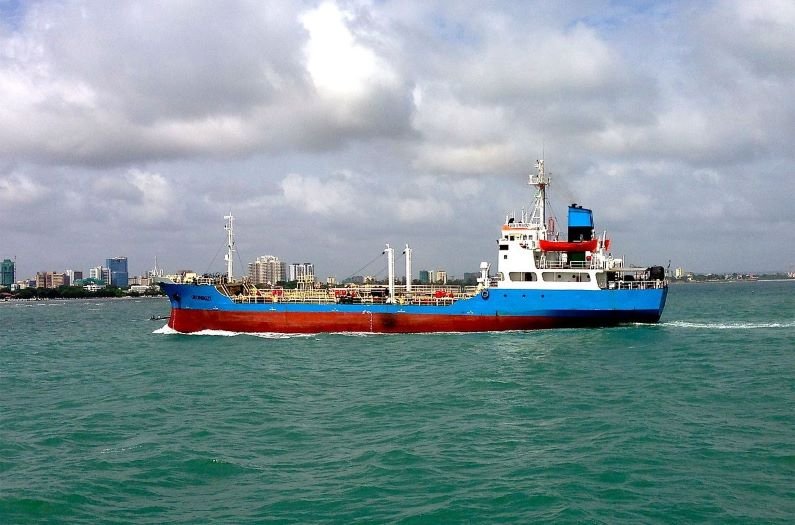Shipping plays a pivotal role in the economic growth and development of Norway, a country renowned for its rich maritime heritage.This article explores the significance of shipping to Norway and its crucial role in facilitating international trade. We will delve into the benefits that shipping brings to businesses, as well as explore the various industries and sectors that heavily rely on
international shipping to and from Norway.
Industries and Sectors Reliant on Shipping to Norway and Back
Oil and Gas
Norway’s vast offshore oil and gas reserves necessitate reliable shipping services for exportation. Tankers and specialized vessels transport these valuable resources to global markets, fueling Norway’s economy.
Fishing Industry
As one of the world’s largest seafood exporters, Norway relies on shipping to many countries, such as
France,
Spain,
The Netherlands, and
Saudi Arabia to transport its fish and seafood products. Refrigerated cargo vessels ensure the freshness and quality of Norwegian seafood during transit.
Manufacturing and Industrial Sector
Norwegian manufacturing
companies rely on shipping to import raw materials and export finished goods. This includes sectors such as machinery, chemicals, automotive, and electronics.
Shipping to Norway from the USA
Overview of Shipping Routes and Modes (USA to Norway)
Shipping goods between the United States and Norway involves several modes of transportation: air, sea, and land.
Air Freight
Air freight is the quickest way to ship items and is ideal for perishable goods or high-value items. Major airports like JFK in New York and O’Hare in Chicago serve as hubs for
air cargo destined for Oslo Airport.
Sea Freight
Ocean shipping is the most common way of shipping bulk goods. The route mainly passes through the North Atlantic Ocean, docking at ports like Oslo, Bergen, and Trondheim.
Land Freight
Land shipping complements sea and air freight as part of the supply chain within both countries and delivers door-to-door.
Shipping to Norway From the USA: Costs and Rates
Cost Factors
Shipping costs depend on a variety of factors such as distance, weight, dimensions, and mode of transport.
Charges
Various charges are involved in international shipping, including freight charges, customs duties, taxes, and handling fees.
Shipping Documentation and Customs Procedures (USA to Norway)
Documentation
The documentation needed typically includes a Commercial Invoice,
Bill of Lading, Packing List, and specific customs forms for Norway.
Customs Procedures
Norwegian customs enforce strict import regulations. Therefore, compliance is crucial for a smooth shipping process.
Selecting a Shipping Company
Experience, reputation, network, and customer reviews are key factors to consider when choosing a shipping company. Additionally, the company should offer reliable tracking, insurance, and customer support.
Shipping Cars and Containers to Norway
Shipping Cars to Norway
Shipping cars require specific documentation like the Certificate of Origin and an import declaration form. Norway has strict regulations for importing cars, including environmental standards.
Shipping Containers to Norway
Choose between 20-foot and 40-foot containers for your shipment. Bill of Lading, packing list, and
customs documents are mandatory for container shipping.
The Strategic Imperative of Choosing a Reputable Shipping Partner
The intricate web of logistics that underpins
shipping between the USA and Norway demands a thoughtful approach. Opting for a reputable shipping company is not merely a suggestion; it’s a strategic imperative.Whether you’re a business aiming to streamline your global supply chain or an individual seeking a hassle-free shipping experience, the choice of the right shipping partner can make all the difference.
Reputable shipping companies bring not only reliability, but also a wealth of experience in navigating the complexities of international shipping. They are well-versed in the regulations, customs procedures, and cultural nuances that can impact the smooth flow of goods between these two nations.By entrusting your shipments to such companies, you ensure that your cargo arrives safely and on time, minimizing the stress and uncertainty that can often accompany international shipping.The peace of mind that comes with this choice is invaluable, allowing you to focus on your core business or simply enjoy the anticipation of receiving goods from afar.When it comes to shipping to Norway, the message is clear: invest in a reputable shipping company for a smoother, stress-free experience that ensures your cargo reaches its destination with efficiency and reliability.Your business and your peace of mind will thank you for it. Texas International Freight also ships to neighboring countries like
Sweden, Finland, and Iceland.
Navigating the Complexities of Transporting Heavy Equipment for Norway’s Oil Industry
Shipping heavy machinery to Norway presents a unique opportunity for businesses involved in the oil industry.As a global leader in oil production and exploration, Norway’s demand for specialized equipment is substantial.The heavy equipment typically shipped for oil rig construction and related activities is crucial to the industry’s success.Here’s a closer look at what’s involved in shipping this type of machinery to Norway.
Heavy Machinery Commonly Shipped to Norway’s Oil Industry
Norway’s oil industry requires an array of heavy machinery and equipment, which must be transported with precision and care.Some of the most commonly shipped items include:
- Oil rig components: These include drilling equipment, risers, and blowout preventers, which are essential for the safe and efficient operation of oil rigs.
- Heavy cranes: Used for the construction and maintenance of offshore and onshore rigs, these cranes are critical for handling large and heavy materials.
- Pipelines and pumps: These are necessary for transporting oil and gas from the rigs to processing facilities.
- Subsea equipment: Tools and machinery used for underwater operations, such as remotely operated vehicles (ROVs) and subsea control systems.
- Construction machinery: Bulldozers, excavators, and loaders are often required for building and maintaining oil-related infrastructure.
Challenges of Shipping Heavy Machinery to Norway
Transporting such massive and specialized equipment to Norway involves navigating a series of challenges.Here are some key considerations:
- Weather conditions: Norway’s harsh weather, including high winds and rough seas, can make shipping particularly challenging.
- Customs regulations: Understanding Norway’s strict customs requirements is vital to avoid delays and ensure smooth entry into the country.
- Shipping routes: Selecting the right shipping route is crucial, especially when transporting oversized or heavy cargo that may require special handling.
- Packaging and securing cargo: Properly packaging and securing the equipment is essential to prevent damage during transit, particularly in the rough North Sea conditions.
Selecting the Right Shipping Method
Choosing the appropriate shipping method is vital for the successful delivery of heavy machinery to Norway.Businesses typically have a few options:
- Roll-on/Roll-off (RoRo) Shipping: Ideal for transporting vehicles and machinery that can be driven on and off the vessel. This method is often used for shipping cranes, bulldozers, and similar equipment.
- Flat Rack Shipping: Suitable for oversized equipment that doesn’t fit into standard containers. This method allows for easy loading and unloading of large items.
- Breakbulk Shipping: For exceptionally large or heavy machinery, breakbulk shipping involves loading cargo individually onto the vessel. This is often used for oil rig components and other bulky items.
- Container Shipping: When possible, smaller pieces of machinery or equipment can be shipped in containers for added protection against the elements.
Partnering with a Reliable Logistics Provider
Given the complexities of shipping heavy machinery to Norway, partnering with an experienced logistics provider is essential.A reliable partner can offer:
- Expertise in handling oversized and heavy cargo: Ensuring that the equipment is properly secured and transported safely.
- Knowledge of Norway’s shipping regulations: Helping to navigate the customs process and avoid unnecessary delays.
- Comprehensive insurance coverage: Providing peace of mind that your valuable equipment is protected during transit.
- Coordination of multimodal transport: Combining sea, air, and land transportation for efficient delivery to even the most remote locations.
Ensuring a Successful Shipment
To ensure the successful delivery of heavy machinery to Norway, businesses should:
- Plan ahead: Early coordination with your logistics provider can help identify potential challenges and develop solutions before they become issues.
- Invest in quality packaging: Proper packaging is crucial for protecting your equipment from damage, especially given the rough conditions of sea transport.
- Understand Incoterms: Familiarizing yourself with international trade terms can help clarify responsibilities and avoid misunderstandings during the shipping process.
- Monitor the shipment: Keeping track of your shipment’s progress can help you stay informed and address any issues that arise during transit.
Shipping heavy machinery to Norway is a complex but rewarding endeavor.By understanding the specific needs of the oil industry, selecting the right shipping methods, and partnering with experienced logistics professionals, businesses can ensure their equipment arrives safely and on time.
Texas International Freight is here to help you navigate these complexities with ease, ensuring that your heavy machinery supports the continued growth and success of Norway’s thriving oil industry.Ready to move your equipment to Norway?
Contact Texas International Freight today and let us guide you through the process with our expertise.
FAQs about Shipping to Norway
How long does shipping from the USA to Norway usually take?
Shipping duration varies by the mode of transport. For air shipments, it typically takes between 1 and 3 days. Sea shipments can take anywhere from 14 to 28 days.
What are the average shipping costs for small packages to Norway?
The average shipping costs for small packages can range from around $20 to $50, depending on the shipping method and the carrier you choose.
Are there any import restrictions or prohibited items when shipping to Norway?
Yes, Norway has specific import restrictions that include agricultural products, firearms, and certain types of chemicals. It’s crucial to consult Norway’s official import regulations to ensure that your items can be shipped without any legal complications.
Can I track my shipment from the USA to Norway?
Yes, most shipping companies offer tracking services that allow you to monitor the status of your shipment from the USA to Norway.
What are the options for expedited shipping from the USA to Norway?
Expedited shipping is usually conducted via air freight, which is the quickest but most expensive option. Some companies also offer expedited sea freight services at a higher cost.





